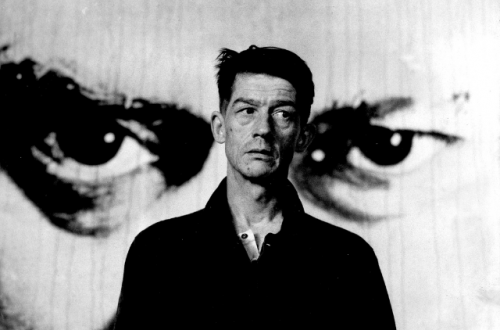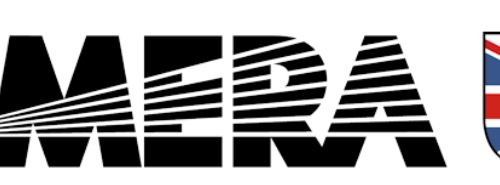This is a guest post by Quizblorg
After his initial, casual response to the question if he was familiar enough with Charlie Hebdo to justify his boycott of its PEN award, which basically amounted to “LOL TF;DR” (too French; didn’t read) was widely derided as shockingly inadequate, Keith Gessen elaborated on his reasons for joining the boycott in a piece on the website of the magazine he co-founded.
It’s written in a rather calm, level-headed tone, and contains passages of seeming evenhandedness – which almost succeeds in disguising how grossly wrongheaded and incoherent its basic arguments and central conclusions are.
Gessen had hinted before that his boycott had a lot to do with PEN as an institution, rather than just the particular event he boycotted in isolation; accordingly he starts his piece by talking about PEN, whose efforts in defending freedom of speech mainly focus on “poor countr[ies] with a shitty dictatorial government“.
At first he seems to use the familiar Chomskyite explanation for why that’s wrong, asking
“what could New Yorkers do with this information? […]They couldn’t write Putin a letter. “
– yet what he says next immediately rebuts this argument
“But they could write their Congressional representative a letter to get tougher on Putin.”
Except that Gessen apparently doesn’t see it as a rebuttal, but as even greater cause for concern. He may be in favour of freedom of expression and anti-authoritarianism – but not if the fight for them could translate into tough foreign policy. He doesn’t reject PEN’s approach because of its ineffectiveness, but because of its possible effectiveness, asking worriedly “What [is] the overall effect of PEN programming on the American body politic?”
He then examines this “overall effect” in the context of what he calls a “powerful ideological movement[…] that goes by the name of “human rights.”
His discussion of this seems at first relatively even-handed, saying how, of the recent American interventions under the principle of RTP, “some were better motivated than others”, but that is quickly revealed as lip service, as the conclusion he reaches might as well come from a SWP pamphlet in its simplisticness and vulgar pacifism:
“all the humanitarian interventions had in common is that, for all the rhetoric of humanitarianism involved, what they actually involved was using advanced American technology from the air to obliterate human beings on the ground”
Gessen goes on to complain that PEN (a writers’ organization dedicated to the fight for freedom of speech) doesn’t focus more on “economic rights” – which is a bit like complaining that the NAACP doesn’t focus more on the problem of global warming. Or, to look at it from a historical perspective, sounds a bit like the kind of criticism a “decadent”, “bourgeois” writer who didn’t focus enough on the class struggle would have been likely to face in the Eastern Block.
Simply because both PEN and a US government that occassionally (and, as Gessen – even 4 years into the Syrian civil war – continues to believe, much too often) engages in humanitarian interventions, subscribe to the traditional concept of human rights, which annoyingly isn’t centered around anti-capitalism, but puts much emphasis on freedom of speech, which Gessen dismissively describes as “a kind of blank-slate human rights agenda” (failing to realize that he only has the luxury to regard it as some kind of mindless, bland default state, rather than a bold philosopical and political position that has to be fought for, because others have done this fighting for him in the past – and that people in other parts of the world don’t share his privilege in this regard) Gessen, as an opponent of the second, condemns the first.
At the end of this passage he even admits – if only in parentheses – that PEN is by no means uncritical of US policies in general, or the way it conducts the war on terror in particular:
“(PEN has spoken out against government surveillance; one of its directors, Larry Siems, compiled The Torture Report, about the CIA torture program post-9/11, and more recently, edited Mohamedou Ould Slahi’s Guantánamo Diary)”
…but apparently all this pales into insignificance next to the ideological support it gives to “the larger American geopolitical project”, simply by its very endorsement of the concept of human rights.
Then, finally, we get to Charlie Hebdo.
CH compounded the sins of the human rights agenda by mocking Islam, considered by Gessen to be the primary victim of that dreaded “geopolitical project”.
Just like he previously went from an admission of the relative merits of some humanitarian interventions directly into a “War is bad, mkay” conclusion, now, in discussing the CH murders, his acknowledgement of the reality of Islamic terror
”The culprit, [George] Packer wrote, was none of these things, but rather militant modern Islam: “an ideology that has sought to achieve power through terror for decades.” It’s the same ideology, Packer wrote, “that murdered three thousand people in the U.S. on September 11, 2001.” And it was: the brothers had even pledged allegiance to al Qaeda.”
immediately segues into its scare-quotification:
“Packer’s language took one back to the days after the September 11 attacks, when Western politicians and intellectuals began gearing up for a long protracted war with “Islamic terror.” That war, obviously, continues. “
Maybe Gessen thinks that admitting the validity of something and then completely ignoring its implications is the same thing as engaging with it and then refuting it? It’s all a bit baffling.
Not quite as baffling as what follows, though.
“The letter worried that the award would go further than was necessary to defend the right of the cartoonists to their speech; it would actively celebrate that speech. And given that that speech was sometimes directed at Muslims, and given that the men who killed the cartoonists claimed to be doing so in the name of Islam (“we have avenged the Prophet!” they said as they left), it did not seem right, in this place and at this time, to encourage such speech.”
So the very fact that the Charlie Hebdo journalists were murdered by Islamists is one of the reasons why they shouldn’t be honoured. This is not just granting the assassin’s veto – it’s mopping up the blood for the assassin, and asking him if you’re not making too much noise doing so.
Then, in his by now familiar way, Gessen concedes that everything his critics and Charlie Hebdo’s defenders have said about it was basically right
”The editors were committed leftists who participated in anti-racist campaigns; they visited prisons and spoke out against poor conditions; they directed most of their ire at the Front National, the noxious French radical right party. The infamous Charlie cover with Justice Minister Christiane Taubira, France’s first black justice minister, depicted as a monkey, borrowed its imagery from an FN poster, and was meant to mock the FN. And if Charlie Hebdo made fun of Muslims—also the target of the ire of the Front National—they made fun of Catholics much more.“
…only to draw absolutely no consequences, to let his conclusions remain completely unaffected by any of it.
People like Gessen consider Islamophobia so paramount a problem that it forces them to judge any conflict by a very simple algorithm: On which side of it do you find Muslims? That’s the side you have to take. No, strike that – it’s not quite as simple, and much more troubling. Their real question is “On which side of it do you find authentic Muslims?”. Authentic Muslims are Muslims who are enraged by portraits of Muhammed – not Muslims like Charlie Hebdo editor Mustapha Ourrad (or, say, the three secular Bangladeshi bloggers who were hacked to death in the last few weeks) who are killed for blasphemy. Authentic Muslims are those who have been victimized or agitated by the war on terror – not those whom the war on terror has protected from the Taliban or Al-Qaeda.
There are, of course, many things about the war on terror that can or should be criticized –but Gessen is no mere critic of it. His relationship to the war on terror is more like that of a McCarthyite to communism. It is so anathema to him that not only active support for it, but merely the vaguest, flimsiest of associations with it is reason enough for him to boycott a free speech award for people who were murdered for their speech.
Towards the end of his piece he reiterates his disappointment that the freedom of speech organization PEN is focused on defending freedom of speech, adding racism as another more pressing concern along with economic ones.
Yet as important as the fight against racism is, it is (in spite of fashionable intersectionalist homilies) not necessarily intertwined with that for free speech. Except, of course, in some instances, where those who want to suppress free speech also happen to be racists. Perhaps even murderous racists. Like when they kill somebody both for blasphemy and for being Jewish. Or when they round off their massacre of blasphemers with one of Jews qua Jews. You’d think that honouring the victims of these racists would be the perfect way of combining the fight for free speech with that against racism. And yet this is exactly what Gessen disapproves of – while castigating PEN for ignoring racism.
Gessen closes with this gem:
“even if free speech seemed to you the basis of all other freedoms, you would still, I hope, acknowledge that the greatest threat to it comes not from fringe religious extremists, but from the US government”
And yet eight Charlie Hebdo staffers are dead, whereas Noam Chomsky, Michael Moore, and even the great daring radical Keith Gessen, are still alive (and as loquacious as ever).
I guess the most charitable explanation for the extremely poor quality of his piece is that Gessen had jumped the gun with his initial support for the boycott – and with his initial comment on twitter – and that, seeing the derision it had caused yet deciding that it was too late to backtrack, he grabbed for whatever he could find to at least simulate a reasonable defense of his position, like an intellectual (and much more inept) MacGyver trying to construct a convincing argument out of a potato and some wire; that his arguments are so bad because they’re emergency arguments, chosen not on their merits but on whether they could in any way be roped in to support what he had already expressed a priori, the option of quality control hampered by the need for damage control. The other explanation, that this is what his thought process looks like even when he’s not under pressure, is more depressing.


